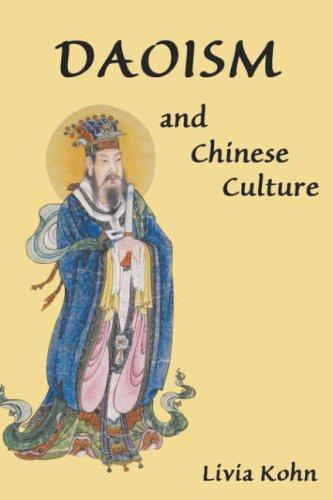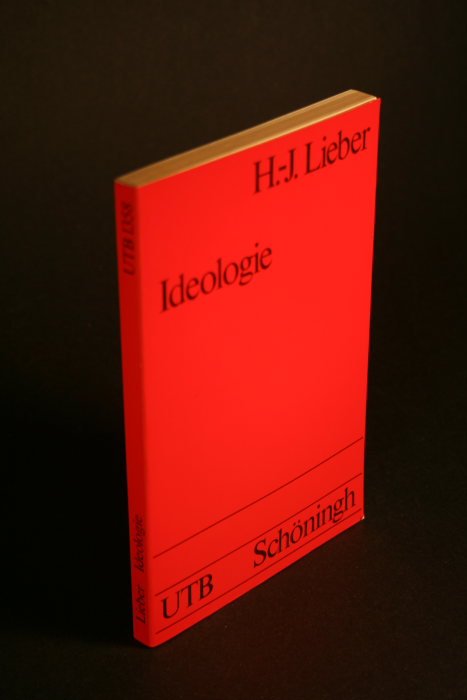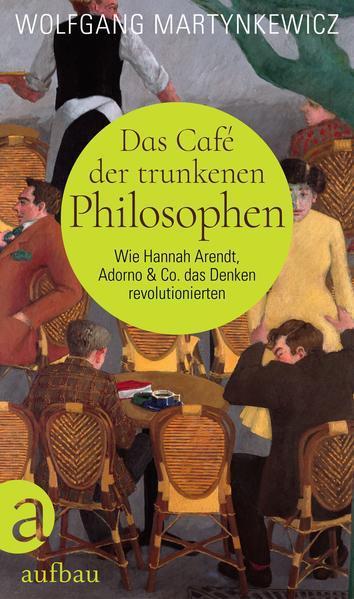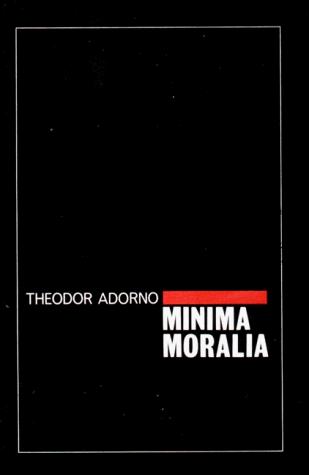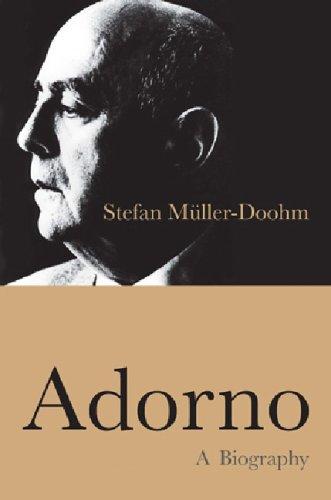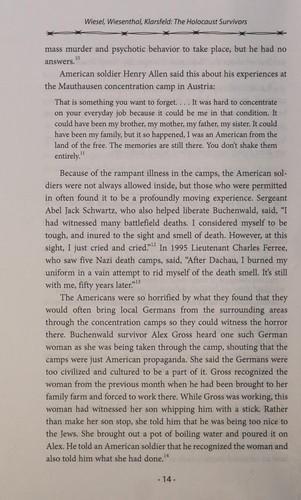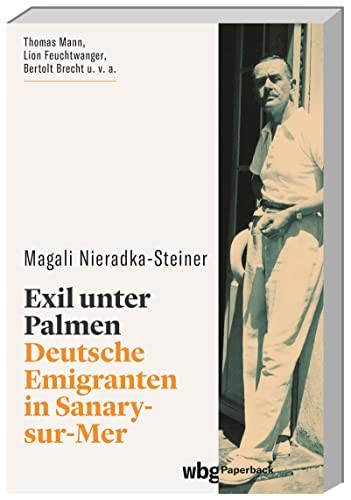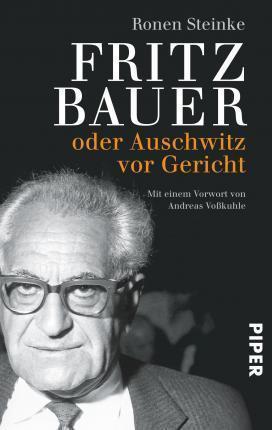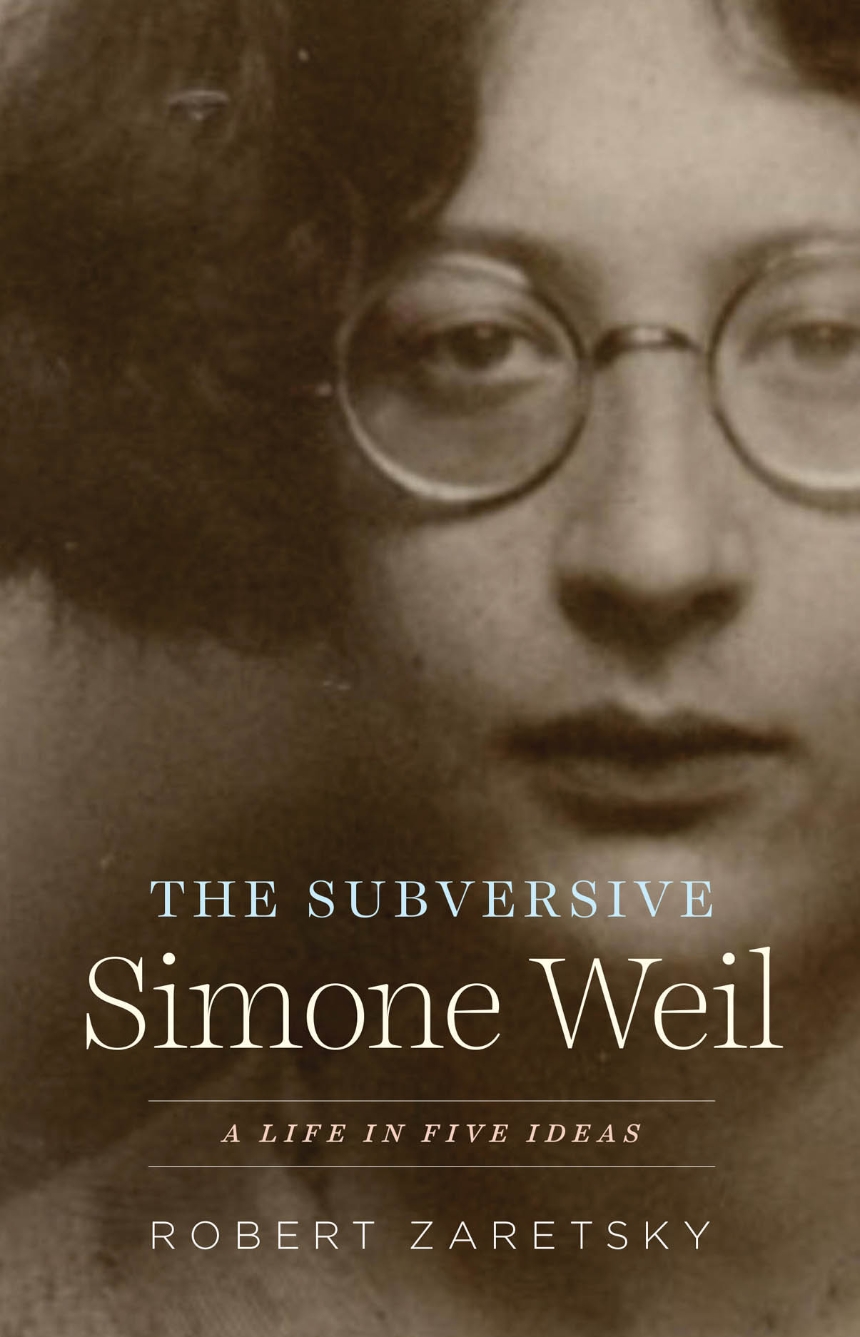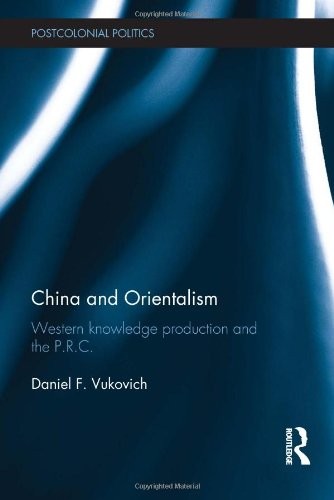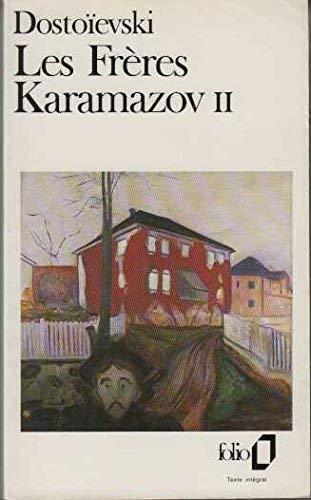I am still re-reading it, obsessing over paragraphs, taking notes and drawing diagrams, etc. Haven't worked this closely with an entire book before. Told myself I would wait until I have gained "enough understanding" of the text before I write a review, but I realize now that's not a smart goal to set. So here's a few sentences. This is a very dense text. You can read it multiple times and unlock new layers of meaning each time. Sometimes a little Nebensatz will contain multitudes. There's little dialectical movements to be found all over and it's always fun to spot them. The prose is beautiful and precise. I can't explain my current obsession with this book (and with Teddie in general) but it is what it is.
Reviews and Comments
silly little guy he/it
My languages in order of proficiency: German French English Chinese. The reason I read so much in English is only because most pirated epubs are in English. I have no consistent grading system, the stars are based on vibes, don't read into it. I am not a critic; my "reviews" simply document what it was like for me to read the book in question.
This link opens in a pop-up window
possm reviewed Dialektik der Aufklärung by Theodor W. Adorno
Made its way into my head and lives there rent free and I can't get it to leave
5 stars
I am still re-reading it, obsessing over paragraphs, taking notes and drawing diagrams, etc. Haven't worked this closely with an entire book before. Told myself I would wait until I have gained "enough understanding" of the text before I write a review, but I realize now that's not a smart goal to set. So here's a few sentences. This is a very dense text. You can read it multiple times and unlock new layers of meaning each time. Sometimes a little Nebensatz will contain multitudes. There's little dialectical movements to be found all over and it's always fun to spot them. The prose is beautiful and precise. I can't explain my current obsession with this book (and with Teddie in general) but it is what it is.
possm rated Dialektik der Aufklärung: 5 stars
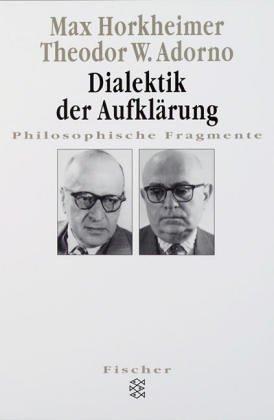
Dialektik der Aufklärung by Theodor W. Adorno, Max Horkheimer
Max Horkheimer und Theodor W. Adorno verfassten gemeinsam im US-amerikanischen Exil ihre Gedanken zur Dialektik der Aufklärung und veröffentlichten sie …
possm reviewed Ideologie by Hans-Joachim Lieber (UTB für Wissenschaft)
Academic work
4 stars
I didn't understand everything but I finished this book with a better understanding of the definitions of ideology, the history of the term and idea, and some specific things like the positivism dispute, than I had started it. So, full success. Will definitely revisit parts of it when needed, no need to ever re-read it back to back.
I didn't understand everything but I finished this book with a better understanding of the definitions of ideology, the history of the term and idea, and some specific things like the positivism dispute, than I had started it. So, full success. Will definitely revisit parts of it when needed, no need to ever re-read it back to back.
Good if you're interested in that generation of German philosophers
4 stars
Interesting read, prose ok. One extremely funny recurring theme is how no one likes Adorno and how he calls everyone a fascist. I especially like the chapter where the author compares the theory of antisemitism in Dialectic of Enlightenment with Hannah Arendt's Origins of Totalitarianism, shows the similarities and where they diverge. Made me want to read both of these works.
I don't have a lot to say about this book? I had a good time and learned a lot. It's interesting how similar in concept and in title it is to the "Existentialist Café" that I read just a few months ago. In comparison, this one is less entertaining, a bit more serious, and way less opinionated (author invisible). I like them both.
Interesting read, prose ok. One extremely funny recurring theme is how no one likes Adorno and how he calls everyone a fascist. I especially like the chapter where the author compares the theory of antisemitism in Dialectic of Enlightenment with Hannah Arendt's Origins of Totalitarianism, shows the similarities and where they diverge. Made me want to read both of these works.
I don't have a lot to say about this book? I had a good time and learned a lot. It's interesting how similar in concept and in title it is to the "Existentialist Café" that I read just a few months ago. In comparison, this one is less entertaining, a bit more serious, and way less opinionated (author invisible). I like them both.
A lecture from the 1960s about the then new NPD
3 stars
I guess the typical thing to focus on, and the reason why this lecture got made into a book half a century after it was held, would be how uncannily Adorno predicted certain developments, how prescient his analysis was, etc. I don't even want to argue against this reading, I just think it would be boring of me to point out the same things. It's partly true that Adorno makes some prescient points, and partly true that it's easy to make anything sound prescient in retrospect, that's why horoscopes are so popular. It's a good little text, Adorno's transcribed spoken word is easier to understand than his written works. It offers aspects of a theory of fascism, listing propaganda tactics. It's not groundbreaking but it's nice.
I guess the typical thing to focus on, and the reason why this lecture got made into a book half a century after it was held, would be how uncannily Adorno predicted certain developments, how prescient his analysis was, etc. I don't even want to argue against this reading, I just think it would be boring of me to point out the same things. It's partly true that Adorno makes some prescient points, and partly true that it's easy to make anything sound prescient in retrospect, that's why horoscopes are so popular. It's a good little text, Adorno's transcribed spoken word is easier to understand than his written works. It offers aspects of a theory of fascism, listing propaganda tactics. It's not groundbreaking but it's nice.
possm commented on Minima Moralia by Theodor W. Adorno
Gonna get a physical copy of this one. The pdf I have appears to be missing some pages, plus I feel certain I'll reread it several times so should be worth it.
Gonna get a physical copy of this one. The pdf I have appears to be missing some pages, plus I feel certain I'll reread it several times so should be worth it.
possm reviewed Adorno by Stefan Muller-Doohm
Extremely thorough biography
4 stars
This is a long and thorough biography of Adorno that works well as an introduction to his philosophy. I feel like I learned a lot. The more theoretical passages went over my head, but I think the mind still retains something even of texts that are several levels too difficult. It's not a waste of time to read them, more or less attentively. I'm side-eyeing the biographer for conservative intuitions and misogyny. I'm especially surprised at his seeming lack of curiosity towards Gretel Adorno, who by his own account played a major part in TWA's writing process. Why does the biographer feel the need to tell us all about TWA's grandfather, several of his intellectual friends, etc, but next to nothing about who his wife was? Before reading this biography I felt unequipped to read any work of Adorno on my own - now I feel equipped for a few …
This is a long and thorough biography of Adorno that works well as an introduction to his philosophy. I feel like I learned a lot. The more theoretical passages went over my head, but I think the mind still retains something even of texts that are several levels too difficult. It's not a waste of time to read them, more or less attentively. I'm side-eyeing the biographer for conservative intuitions and misogyny. I'm especially surprised at his seeming lack of curiosity towards Gretel Adorno, who by his own account played a major part in TWA's writing process. Why does the biographer feel the need to tell us all about TWA's grandfather, several of his intellectual friends, etc, but next to nothing about who his wife was? Before reading this biography I felt unequipped to read any work of Adorno on my own - now I feel equipped for a few of them. Besides that, I also learned some German history, especially the post-war period. That's an excellent outcome, so I am glad I read this book. One issue I had is with the translation. I would have much rather read this in German. The translation is subpar - just a head's up for people who have the choice I didn't get.
possm reviewed Wiesel, Wiesenthal, Klarsfeld by Tabatha Yeatts (Remembering the Holocaust)
The aftermath of the Shoah explained to children
2 stars
I had this idea that a history book written for schoolchildren might make for a lighter and easier read. It turns out I didn't like this, but I'm not sure whether my idea was mistaken or whether this is simply a bad book. Honestly, I remember as a child how much I hated feeling like an author was talking down to me. I think this book would have given me this kind of feeling had I read it as a child. In the end it's like I read a couple wikipedia articles in Simple English. I did learn a few things but I also wasted a lot of time.
I had this idea that a history book written for schoolchildren might make for a lighter and easier read. It turns out I didn't like this, but I'm not sure whether my idea was mistaken or whether this is simply a bad book. Honestly, I remember as a child how much I hated feeling like an author was talking down to me. I think this book would have given me this kind of feeling had I read it as a child. In the end it's like I read a couple wikipedia articles in Simple English. I did learn a few things but I also wasted a lot of time.
possm reviewed Exil unter Palmen by Magali Nieradka-Steiner
Chronicles of exiled German intellectuals in one French village
2 stars
The book contains a couple of fun anecdotes, I especially enjoyed reading about Marta Feuchtwanger, she sounds amazing. But for the most part, it's not making the most of the material. Bad structure, bad transitions between parts, sentences that should have been broken up. Often the writing devolves into just listing names of notable people, sometimes over half a page. The author is clearly passionate about her research and very knowledgeable, which is great. But this book is not well written.
The book contains a couple of fun anecdotes, I especially enjoyed reading about Marta Feuchtwanger, she sounds amazing. But for the most part, it's not making the most of the material. Bad structure, bad transitions between parts, sentences that should have been broken up. Often the writing devolves into just listing names of notable people, sometimes over half a page. The author is clearly passionate about her research and very knowledgeable, which is great. But this book is not well written.
possm reviewed Fritz Bauer by Ronen Steinke
This is how you write a biography.
5 stars
Extremely solid biography. Just the right amount of detail, just the right amount of historical context, just the right amount of philosophical context, very little psychological speculation with a good amount of solid evidence-based argumentation. Very little sentimentality, deployed appropriately. Good, matter-of-fact prose. Absolute Goldilocks type biography. Highly recommended to anyone interested in the subject matter.
Extremely solid biography. Just the right amount of detail, just the right amount of historical context, just the right amount of philosophical context, very little psychological speculation with a good amount of solid evidence-based argumentation. Very little sentimentality, deployed appropriately. Good, matter-of-fact prose. Absolute Goldilocks type biography. Highly recommended to anyone interested in the subject matter.
possm reviewed Jüdischer Widerstand in Europa by Dieter Bingen
You should read this book if you want to know about Jewish resistance in Europe 1933-1945.
4 stars
Each chapter is a paper by a different historian, so there's a lot of variation in the quality of the writing. The book is divided by geographic area, which makes sense: the conditions and forms of Jewish resistance did vary by area quite a lot, it turns out. The subject matter of Jewish life during national socialism is pretty grim, so it was a tough read at times, still the fact that the book is about resistance gives it a relatively optimistic focus. I especially liked the chapters that were about individual figures or groups. The chapters that focused more on the broader history were a little boring to me. The contextualization of the book in the discourse among historians (first two chapters) was very interesting. The art history and literary studies chapters in the last part were boring to me personally. The collection of yiddish resistance songs at the …
Each chapter is a paper by a different historian, so there's a lot of variation in the quality of the writing. The book is divided by geographic area, which makes sense: the conditions and forms of Jewish resistance did vary by area quite a lot, it turns out. The subject matter of Jewish life during national socialism is pretty grim, so it was a tough read at times, still the fact that the book is about resistance gives it a relatively optimistic focus. I especially liked the chapters that were about individual figures or groups. The chapters that focused more on the broader history were a little boring to me. The contextualization of the book in the discourse among historians (first two chapters) was very interesting. The art history and literary studies chapters in the last part were boring to me personally. The collection of yiddish resistance songs at the end, on the other hand, was a great, non-dry way to close the book.
I learned a lot from this book. It is an academic work that is exactly about what the title says - very straightforward. I knew what I was getting into, and got what I expected.
possm reviewed The Subversive Simone Weil by Robert Zaretsky
Good subject matter, bad biographer
3 stars
Good: the structure (a life in five ideas) makes sense and is easy to follow. Bad: the biographer makes himself way too visible. I do not care about his judgments on the practicability of Weil's ideas, even less about his strange downplaying of French and British colonialism, and less still about his bizarre asides about Donald Trump or smartphones. Those are the worst! Did his editor tell him he can only write about Weil if he ties her to contemporary issues somehow? It's so bad.
Simone Weil is a great figure to write a biography about. I think less of her now, than I did before reading this. My commie brain is telling me that she was just a bourgeois reactionary who only got more openly right-wing with age. In a way, she was the traditional stereotype of what commies imagine all anarchists are like. Fortunately I don't just …
Good: the structure (a life in five ideas) makes sense and is easy to follow. Bad: the biographer makes himself way too visible. I do not care about his judgments on the practicability of Weil's ideas, even less about his strange downplaying of French and British colonialism, and less still about his bizarre asides about Donald Trump or smartphones. Those are the worst! Did his editor tell him he can only write about Weil if he ties her to contemporary issues somehow? It's so bad.
Simone Weil is a great figure to write a biography about. I think less of her now, than I did before reading this. My commie brain is telling me that she was just a bourgeois reactionary who only got more openly right-wing with age. In a way, she was the traditional stereotype of what commies imagine all anarchists are like. Fortunately I don't just think with my commie brain and am able to see her as a complex and nuanced figure. I do feel like many intellectuals are probably sympathetic to Weil out of class solidarity. They regard her as a uniquely strong willed and uncompromising figure because she was also a bourgeois intellectual, and disregard all the other militants who have done far better work than her while leading lives just as raw and uncompromising - if not more so, since she could, and did, always go back to her rich parents after any of her failed life experiments (e.g. trying to work in a factory or to fight in the Spanish civil war). But I've been following this train of thought while reading and have decided to not come down too harshly on Weil for being, well, privileged. That would be a simplistic lens to view her life through.
This book made me want to learn more about other militant figures of Weil's time.
possm reviewed China and Orientalism by Daniel F. Vukovich (Postcolonial politics -- 5)
Thought provoking
4 stars
Had a hard time for the first few chapters because I was on my guard on whether or not I was reading Mao apologia - but the more I got into the book, the more I understood the author's points and was able to follow his way of thinking. From then on, this felt like a necessary corrective approach to the field of sinology. The book is written for academics and that's fine. It's still fairly engaging, with exceptions. The last chapter is exceptionally hard to understand, it's too heavy with Marxist theory for my tiny brain. The chapter about the death count of the Great Leap Forward started off like something I would hate (it just feels like the "holocaust denier" kind of argument about numbers not adding up), but somehow managed to make an excellent point about the disregard for Chinese lives that Sinologists show in handling the …
Had a hard time for the first few chapters because I was on my guard on whether or not I was reading Mao apologia - but the more I got into the book, the more I understood the author's points and was able to follow his way of thinking. From then on, this felt like a necessary corrective approach to the field of sinology. The book is written for academics and that's fine. It's still fairly engaging, with exceptions. The last chapter is exceptionally hard to understand, it's too heavy with Marxist theory for my tiny brain. The chapter about the death count of the Great Leap Forward started off like something I would hate (it just feels like the "holocaust denier" kind of argument about numbers not adding up), but somehow managed to make an excellent point about the disregard for Chinese lives that Sinologists show in handling the history of the GLF. This book confronted me with my own unconscious racisms and essentialisms. It made me aware of some rotten things in sinology. I hope to reread the last chapter once I have a more solid grasp on Marxist concepts. I guess maybe I should read Said's Orientalism too, since it is the framework that this book is based on. Maybe someday. I also think it's interesting that the author isn't a Sinologist but actually considers his external perspective to be an epistemological strength. After all the book is mostly about epistemology (it does have "knowledge production" in the subtitle) and I find that very interesting.
possm reviewed Les frères Karamazov by Fyodor Dostoevsky
Truly an experience
5 stars
Content warning I mention some aspects of the ending
Reading this novel moved many things in me - emotionally, intellectually, etc. It was an incredible experience.
Some superficial thoughts: The antisemitism. Maybe I found it particularly striking because I just finished a book about antisemitism, but wtf is with the constantly recurring, seemingly random antisemitism that adds nothing to the characterization or story? On a similar note, man does Dostoevsky not like women. I remember "The Idiot" was similar in this regard. Of course all 19th century novels contain sexism, but there are degrees. I wish Ivan had gotten more "screen time". Feels a bit like he had the big philosophical dialogue, then disappeared into the background, and only came back in time to go insane at the end. I would have liked more of him. The two other brothers were great. I guess more Smerdiakov would have been nice too. And it would have been nice if the author hated Smerdiakov less. A more sympathetic characterization of him would have improved the story a bit I think. I enjoyed the "schoolboys" side story a lot. I didn't enjoy the trial at the end and had to force myself through it. The epilogue on the other hand was totally amazing and made me cry. I liked all the monastery stuff.
That's all the unqualified thoughts I want to share about The Brothers Karamazov here. Reading this book was truly an experience, these past weeks it overshadowed my life. Next time I read it I'll probably go for a German or English translation, or maybe a different French one. I'd like to know how different the translations make the text.

